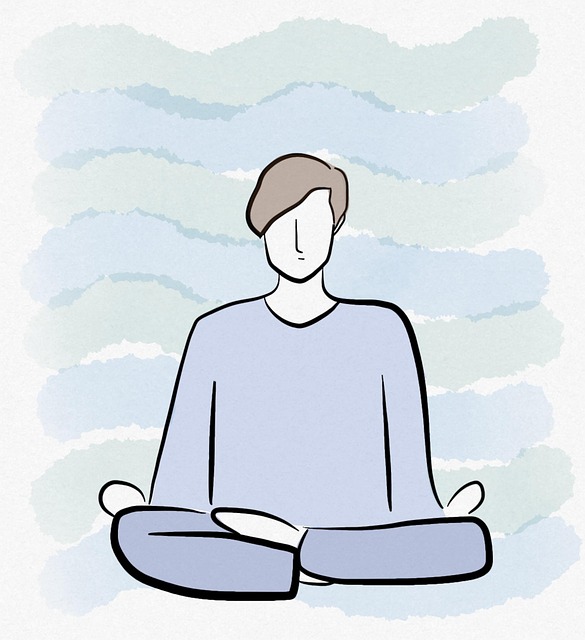Greenwood Village Acceptance and Commitment Therapy (ACT) offers a comprehensive approach to managing anxiety by identifying triggers, challenging negative thought patterns through CBT, promoting mindfulness practices, providing exposure therapy, and reducing stigma. Their structured programs, including self-care routines and community outreach, empower individuals to understand and control anxiety, fostering mental wellness through emotional intelligence and resilience.
Anxiety is a prevalent condition affecting millions, but managing it effectively needn’t be daunting. This guide explores powerful techniques to overcome anxiety, offering practical strategies for those seeking relief. From understanding the roots of anxiety through recognizing patterns and triggers, to evidence-based therapies like Cognitive Behavioral Therapy (CBT) and Exposure Therapy, each section provides insights into navigating this complex emotion. Discover how mindfulness practices and Greenwood Village Acceptance and Commitment Therapy can foster resilience and reclaim control over your life.
- Understanding Anxiety: Recognizing Patterns and Triggers
- Cognitive Behavioral Therapy (CBT): Challenging Negative Thoughts
- Mindfulness and Meditation: Finding Calm in the Moment
- Exposure Therapy: Facing Fears to Gain Control
Understanding Anxiety: Recognizing Patterns and Triggers

Anxiety is a complex emotion that can manifest differently for everyone. Understanding anxiety involves recognizing patterns and triggers that set off this feeling. For many individuals, specific situations or environments might trigger anxiety attacks, while others experience heightened anxiety as a response to stressful thoughts or memories. Greenwood Village Acceptance and Commitment Therapy (ACT) offers a framework to identify these triggers by helping clients recognize when their minds are caught up in unhelpful thoughts and behaviors.
By developing a self-care routine that incorporates emotional intelligence, individuals can better manage their anxiety. This includes practicing mindfulness techniques, engaging in regular physical activity, and fostering social connections. Moreover, Mental Illness Stigma Reduction Efforts play a crucial role in encouraging open conversations about anxiety, thereby normalizing experiences and promoting understanding not just for the individual but also within their broader community.
Cognitive Behavioral Therapy (CBT): Challenging Negative Thoughts

Cognitive Behavioral Therapy (CBT) is a highly effective approach to managing anxiety, focusing on challenging and changing negative thought patterns that contribute to anxious feelings. This therapy technique, offered by professionals like those at Greenwood Village Acceptance and Commitment Therapy, encourages individuals to identify distorted thinking and replace it with more realistic and positive thoughts. By doing so, CBT helps individuals gain a healthier perspective, reduce symptoms of anxiety, and improve overall mental wellness.
Self-awareness exercises play a crucial role in CBT, enabling clients to recognize when negative thought cycles arise. Through mental wellness coaching programs development, therapists guide individuals through this process, helping them understand that their thoughts directly influence their emotions and behaviors. This awareness is the foundation for implementing strategies to reframe negative thoughts, fostering a sense of control and reducing the impact of anxiety in daily life. Community outreach program implementation can also extend these therapeutic benefits, offering support networks and resources to those seeking to manage anxiety effectively.
Mindfulness and Meditation: Finding Calm in the Moment

Mindfulness and meditation are powerful tools within the realm of Acceptance and Commitment Therapy (ACT), a therapeutic approach gaining traction in Greenwood Village and beyond. These practices encourage individuals to focus on the present moment, cultivating a deeper sense of calm and awareness. By observing thoughts and sensations without judgment, one can create space between stimuli and their reactions, much like navigating through a bustling city street while remaining mindful of surrounding traffic.
This mindfulness is crucial for managing anxiety as it helps in understanding and accepting emotions rather than reacting impulsively. The practice also enhances emotional intelligence—the ability to recognize and manage both your own and others’ emotions—which plays a significant role in mental health awareness and risk assessment for professionals. Through regular meditation, individuals can develop a stronger connection with their true selves, fostering resilience against anxiety’s pervasive effects.
Exposure Therapy: Facing Fears to Gain Control

Exposure therapy is a powerful technique within the realm of Acceptance and Commitment Therapy (ACT), specifically tailored to help individuals manage anxiety disorders. By gradually exposing themselves to feared situations or objects, individuals confront their anxieties head-on, allowing them to gain control over their reactions. This process involves facing their fears in a safe and controlled environment, which helps to challenge and change the way they perceive and respond to threatening stimuli.
Through exposure therapy, people can learn effective conflict resolution techniques for managing anxiety, ultimately improving their mental health awareness and well-being. By participating in this type of therapy, individuals often discover that their fears are not as daunting as they once seemed, fostering a sense of empowerment and resilience. This approach is particularly beneficial in the context of Mental Health Policy Analysis and Advocacy, as it enables people to take charge of their mental health journey and make informed decisions regarding their treatment.
Anxiety management is a multifaceted journey, and exploring these techniques can empower individuals to take control. From understanding patterns through self-reflection to adopting evidence-based practices like CBT and mindfulness, each method offers unique benefits. Exposure therapy provides a direct route to confronting fears. By integrating strategies from these approaches, including Greenwood Village Acceptance and Commitment Therapy, one can cultivate resilience and enhance overall well-being. Remember, managing anxiety is a process, and with dedication, it’s possible to lead a calmer, more fulfilling life.











